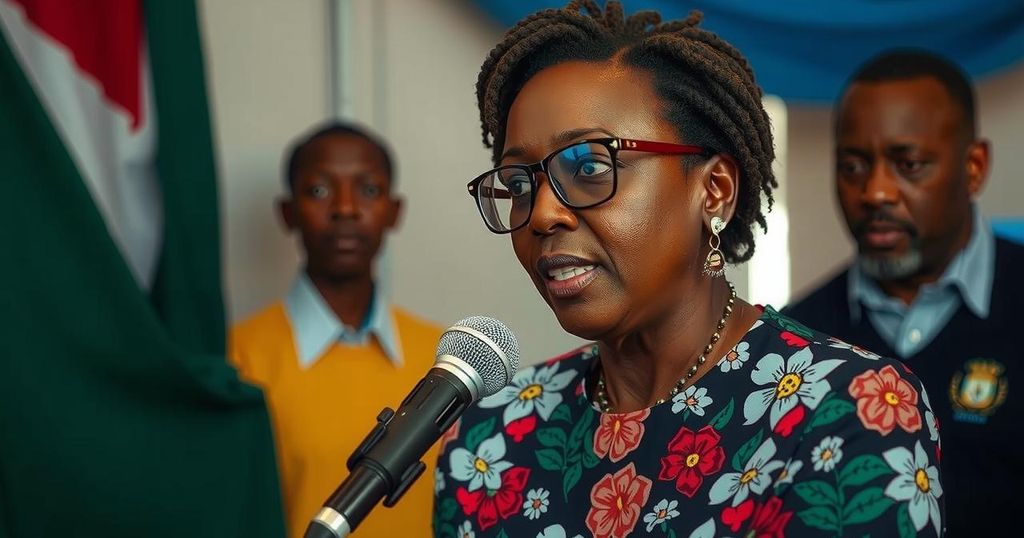Namibia’s Female VP Leads Amid Election Controversy and Opposition Complaints

Namibia’s presidential election witnessed early results showing Vice President Netumbo Nandi-Ndaitwah in the lead, but technical issues prompted an extension of voting and elicited opposition claims of illegality. These complications have raised concerns regarding the election’s integrity, with final results expected soon amid a backdrop of economic discontent and potential legal challenges to the results.
Namibia’s presidential election has seen Vice President Netumbo Nandi-Ndaitwah leading the early results amidst significant technical difficulties. The elections, held on November 27, 2024, were plagued by issues such as a shortage of ballot papers that necessitated an extension of voting across three days. These complications have raised serious concerns from opposition parties, who claim the irregularities undermine the election’s legitimacy. Although Nandi-Ndaitwah, representing the ruling South West Africa People’s Organization (SWAPO), currently holds about 56% of the vote, opposition factions are preparing to contest the results legally, citing the extension as unlawful.
The challenges faced during this electoral process contrast sharply with Namibia’s reputation as one of Southern Africa’s more stable democracies, a country that has been governed by SWAPO since gaining independence in 1990. Voter turnout reflects a populace grappling with high unemployment rates and economic hardships, particularly impacting the youth. As Namibia contemplates a potential first female president, the broader political environment is marked by discontent with government corruption. With approximately 1.4 million votes cast and only 220,000 counted so far, final results are anticipated soon.
The controversy surrounding this election mirrors a broader regional trend in Southern Africa, where discontent with ruling parties has become increasingly pronounced. Neighboring South Africa and Botswana have recently experienced shifts in political power, marking a period of transformation within the region. The Electoral Commission of Namibia has stated that there will be no rerun despite opposition demands for one, indicating a tumultuous political climate ahead.
The presidential election in Namibia, held on November 27, 2024, marks a significant moment in the country’s history, particularly due to the candidacy of Vice President Netumbo Nandi-Ndaitwah, who has the potential to become the first female leader in Namibia. The election is noteworthy not only in this context but also for the technical issues it faced, which have led to challenges from opposition parties regarding the legality and integrity of the process. Despite Namibia’s generally stable democratic reputation, ongoing economic challenges and discontent among the populace have intensified scrutiny of the ruling SWAPO party, following a long period of governance since independence from apartheid South Africa.
In conclusion, while Vice President Nandi-Ndaitwah leads in the preliminary election results, the technical issues and opposition concerns threaten to overshadow what could be a historic opportunity for gender representation in Namibian leadership. The unfolding legal challenges and the response from the Electoral Commission foreshadow a potentially contentious aftermath to the elections. As the focus shifts to addressing these irregularities, the political landscape in Namibia may face significant scrutiny and possible shifts in power dynamics, akin to broader trends observed in the Southern African region.
Original Source: apnews.com







